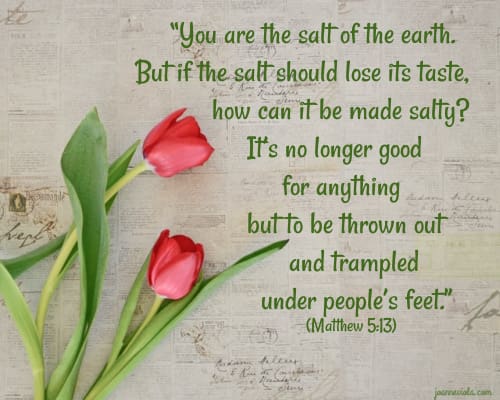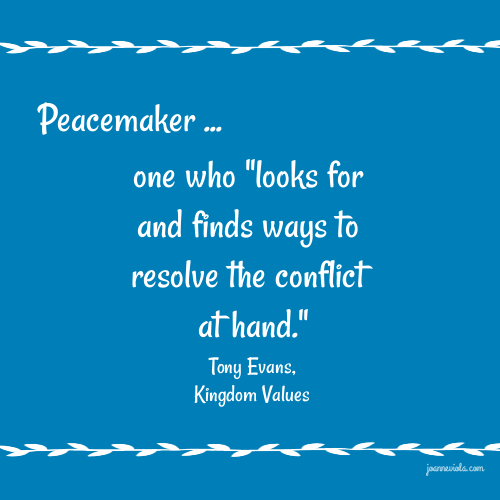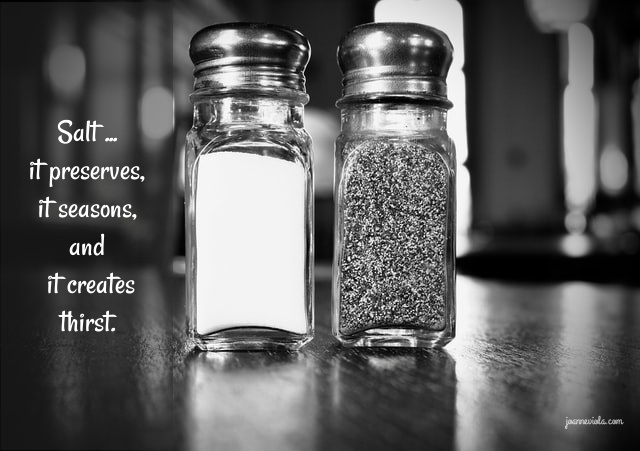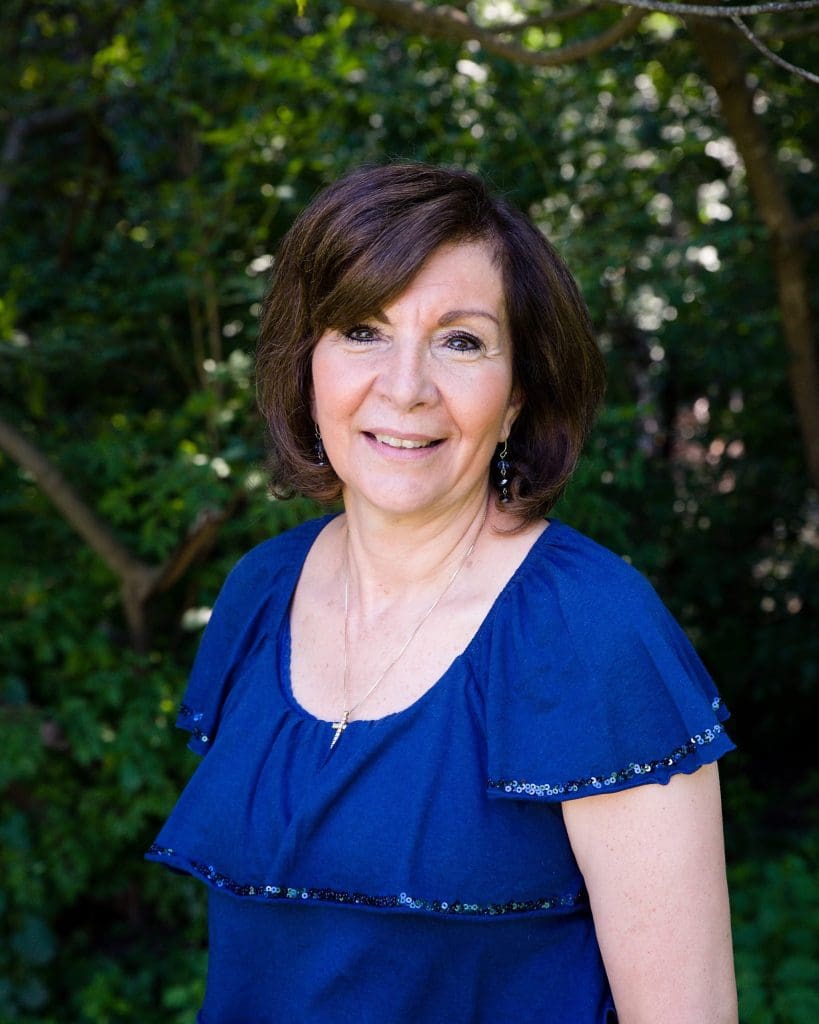It was a second week spent looking at the very words of Jesus …
Memory Verse:
“You are the salt of the earth. But if the salt should lose its taste, how can it be made salty? It’s no longer good for anything but to be thrown out and trampled under people’s feet.” (Matthew 5:13)
~*~*~
We began the week with Matthew 5:7: “Blessed are the merciful, for they will receive mercy” (NASB).
Mercy is not contingent on what someone else can do. It is not based on what they deserve or are entitled to receive.
Showing mercy to others stems from remembering the mercy we ourselves have been shown by God.
When we recognize and understand God’s mercy, we are more apt to be merciful people.
Returning to the book Kingdom Values by Tony Evans, I found this nugget to share:
“Mercy is a powerful thing. Mercy enables you to join the heart of God in helping others.”
Those words struck deep. We can join in the work God is doing in the life of the other person. Do you want to be used by God? Show mercy.
But there is another aspect of mercy which is amazing. When we show mercy to others, God pours out even more mercy towards us. We can start a cycle of mercy in our lives and in those around us because God’s mercy is unending.
Let’s talk about this >>> How is Jesus the perfect picture of mercy? Why should we show mercy to other people?
Our actions matter and can make a difference.
~*~*~
“Blessed are the peacemakers, for they shall be called sons of God.”
(Matthew 5:9, NASB)
The verse immediately brought to mind Galatians 5:22, which reminds us peace is a fruit of the Spirit. It is not something we will be able to produce on our own.
This quality will test us all, for it will surely mean a laying down of ourselves. Even when we are right.
We must first have peace in our own hearts before we can be peacemakers or peaceable.
I again want to share words from Tony Evans:
“Peace includes resolving the conflict by exposing the source of the contention in order to address it.
To live with this kingdom value of peacemaking is to live as someone who does not run away from conflict, but rather faces the conflict with truth in such a way as to resolve it.”
(Kingdom Values, page 167)
I loved the wisdom his statement makes. We don’t pacify or agree with a person to pretend there is no difference of opinion or conflict. But we discuss it in a way to neutralize the conflict while speaking the truth.
The study asks: What does it look like to live as a peacemaker?
Tony Evans defines a peacemakers as one who “looks for and finds ways to resolve the conflict at hand.” With all the conflict in our world, the world surely needs more peacemakers.
May we be those who look for and find ways to resolve the conflict at hand!
~*~*~
“You are the salt of the earth; but if the salt has become tasteless, how can it be made salty again? It is no longer good for anything, except to be thrown out and trampled under foot by men.” (Matthew 5:13, NASB)
Sobering words for sure!
The study reminds us that salt has several purposes: it preserves, it seasons, and it creates thirst.
We must keep our lives pure so that we maintain our “saltiness”. We want to be able to have an impact and influence the people around us.
The study asks: How does the world get a glimpse of Jesus through us? How can your life make people thirsty for the things of God?
As we hold onto the principles of God, those around us will notice we react and respond differently to the issues of our day. As they see Jesus, their interest will be piqued, and thirst created.
Salt – we are the salt already. Let’s go and impact our world.
~*~*~
Our actions matter and can make a difference.
Peacemakers resolve the conflict at hand,
and salty lives can have an impact.
Photo 1: by Debby Hudson on Unsplash
Photo 3: by Lachlan on Unsplash






Thanks, Jo, for these words of wisdom.
‘We must first have peace in our own hearts before we can be peacemakers or peaceable.’
Thank you for the rich feast from God’s Word this morning, Joanne. So much to savor here …
Great wisdom here Ms. Joanne. I’m always appalled at how many self-proclaimed Christians (I can’t know their heart, but their fruit) are judgmental and unaccepting of anyone who is not like them. It sometimes seems they’re saying, “Clean yourself up first and then you can come to our church.” It seems many fail to recognize that because of our sin, we are seen just as dirty as the worst sinner. As Paul said, “… of who I am chief among them …” when referring to sinners. The cleansing and seasoning comes from God my friend. What great points you’ve made. Thank you!
Such wisdom here, Joanne. Living our lives this way is counter-cultural, in every possible setting.
I’ve been thinking about this phrase lately – you have to show up in order to move forward – especially in relationships. This quote seemed to add a dimension to this thought I’ve been turning round: “To live with this kingdom value of peacemaking is to live as someone who does not run away from conflict, but rather faces the conflict with truth in such a way as to resolve it.” Jesus never ran away from the sinner. How many of us say we want to be like Jesus but don’t show up in relationships because they don’t want to humble themselves to push through a conflict to save a soul? Or restore a relationship. Your post helped me with a phrase that belongs to a situation – I think I know better how to pray for it now!
Joanne, what a great post. “Showing mercy to others stems from remembering the mercy we ourselves have been shown by God.”
When we remember Who gives us mercy, showing mercy to others becomes easier.
Amen. Our actions and words can impact the world. May we shine His love and glory in all we say and do. 🙂